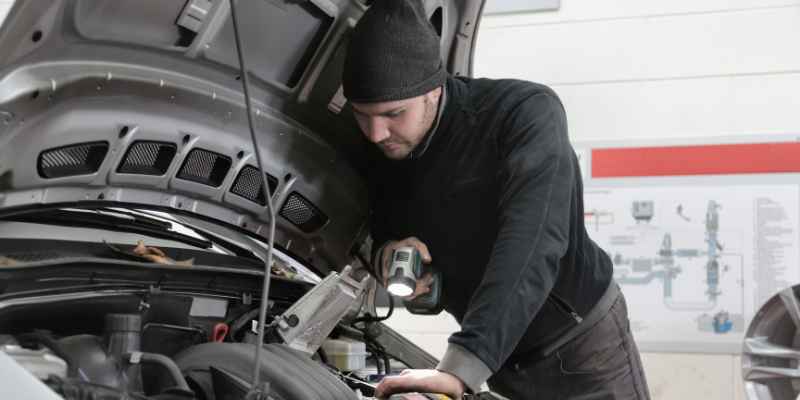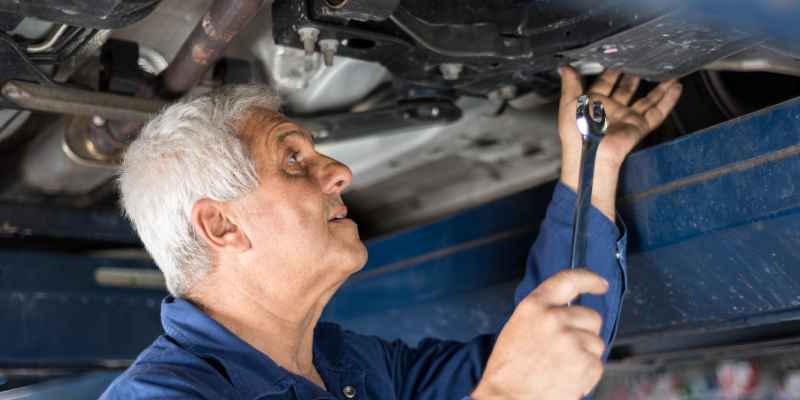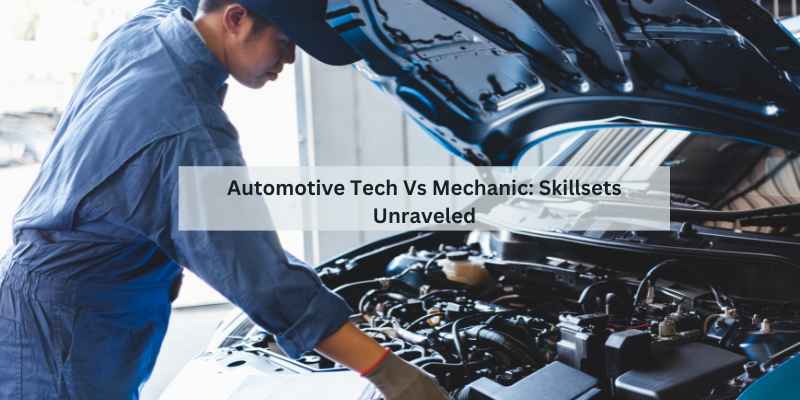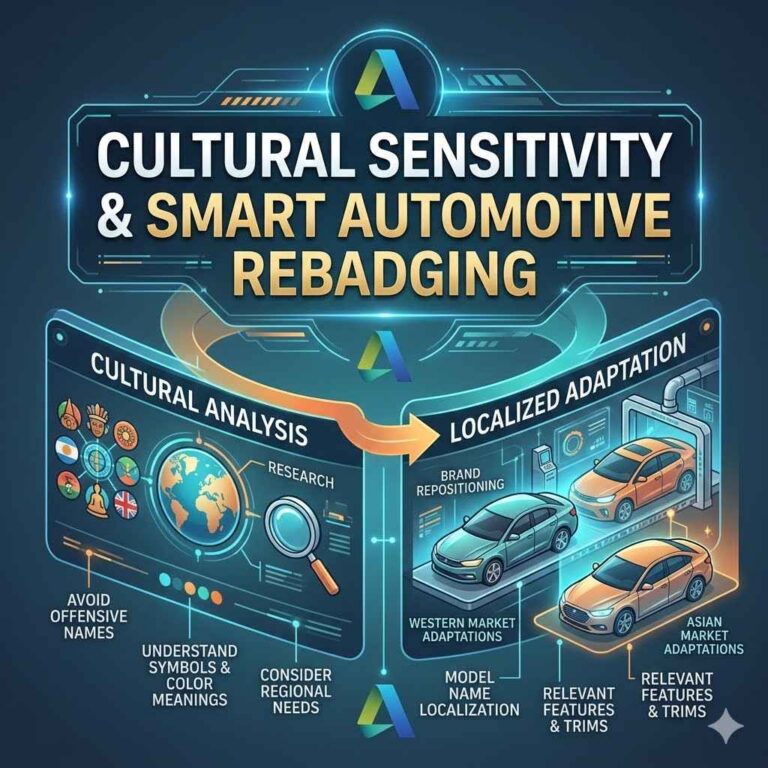Automotive Tech Vs Mechanic: Skillsets Unraveled
Automotive technicians focus on computer diagnostics and specialized training, while mechanics specialize in hands-on mechanical work. Both careers involve physical demands, but technicians may face more computer-related challenges, whereas mechanics primarily handle physical repairs and maintenance.
Automotive technicians often earn more due to their specialized expertise in computer diagnostics, but both professions have their advantages and disadvantages. Becoming a technician usually requires more formal training and certifications, while mechanics may have more hands-on experience. The distinction between the two roles lies in the type of work they primarily focus on, with technicians emphasizing computer diagnostics and mechanics specializing in physical repair and maintenance.
This difference in expertise often leads to varied job responsibilities and earning potential.
The Historical Divide
Automotive technology and traditional mechanical skills have historically existed as separate domains. While mechanics focus on hands-on repairs and maintenance, automotive technicians specialize in computer diagnostics and advanced training. The distinction between the two roles is evident in the specific tasks they handle, with mechanics performing physical work and technicians dealing with complex electronic systems.
Evolution From Grease To Gigabytes
The historical divide between automotive tech and mechanics dates back to the transition from grease-covered hands to working with gigabytes of data. Mechanics traditionally focused on hands-on repairs, while automotive technicians now require expertise in computer diagnostics.
The Role Of Education In Differentiating Roles
Education plays a crucial role in distinguishing between automotive technicians and mechanics. Technicians undergo specialized training for computerized systems, while mechanics often rely on hands-on experience and mechanical skills.
The evolution of automotive technology has led to a clear distinction between the roles of technicians and mechanics. As vehicles become more advanced, the need for specialized knowledge in computer diagnostics has become essential. This shift highlights the importance of education in preparing individuals for the changing demands of the automotive industry.
Core Competencies Of Mechanics
When it comes to the automotive industry, mechanics play a vital role in ensuring vehicles are running smoothly and safely. Let’s explore the core competencies that distinguish mechanics and highlight their essential skills.
Mechanical Mastery: Hands-on Skills
- Diagnostic Abilities: Mechanics excel in diagnosing and troubleshooting mechanical issues.
- Repair Proficiency: They possess hands-on skills to repair engines, brakes, and other components.
- Attention to Detail: Mechanics pay close attention to every detail to ensure precise repairs.
Nuts And Bolts: Common Tasks
- Oil Changes: Mechanics expertly perform routine oil changes to maintain engine health.
- Brake Inspections: They conduct thorough brake inspections to ensure optimal safety.
- Engine Tune-ups: Mechanics skillfully tune engines for peak performance and efficiency.
Overall, mechanics possess a unique set of skills that combine technical expertise with practical knowlege to keep vehicles operating at their best.
Tech-savvy Automotive Technicians
When it comes to automotive maintenance and repair, the role of the traditional mechanic has evolved significantly. Today, tech-savvy automotive technicians are at the forefront, blending traditional mechanical skills with advanced electronic expertise to tackle the complexities of modern vehicles.
Merging Mechanics With Electronics
Tech-savvy automotive technicians are not just grease monkeys; they are adept at working with intricate electronic systems that now dominate vehicle functionality. They merge the traditional know-how of a mechanic with an in-depth understanding of electronic systems, allowing them to diagnose and repair complex electronic issues in modern automobiles.
Diagnostic Wizards: Working With Data
These modern automotive technicians are not just wrench turners; they are diagnostic wizards, leveraging data and technology to pinpoint and resolve vehicle issues. With access to sophisticated diagnostic tools and software, they can interpret complex data, enabling them to address problems that might have stumped traditional mechanics.
Educational Pathways
When it comes to pursuing a career in the automotive industry, there are various educational pathways to consider. Whether you aspire to become a mechanic or an automotive technician, understanding the different routes for acquiring the necessary skills and knowledge is crucial.
Certifications For Mechanics
Certifications play a vital role in the career development of mechanics. These credentials not only validate their skills but also enhance their employability. Some of the prominent certifications for mechanics include:
- ASE (Automotive Service Excellence) Certification
- NATEF (National Automotive Technicians Education Foundation) Certification
- Manufacturer-Specific Certifications (e.g., Ford, Toyota, BMW)
Tech Schools And Advanced Training
Attending technical schools and undergoing advanced training programs can provide aspiring automotive technicians with the necessary knowledge and hands-on experience. These educational pathways offer specialized courses in automotive technology, electrical systems, engine diagnostics, and more. Some of the top technical schools for automotive training include:
- Universal Technical Institute (UTI)
- Lincoln Tech
- Wyotech
Workplace Realities
When considering the workplace realities of automotive tech versus mechanic roles, it’s essential to understand the day-to-day duties and collaboration within the auto shop.
Day-to-day Duties
- Conduct complex diagnostic tests using specialized equipment.
- Perform routine maintenance tasks such as oil changes and tire rotations.
- Utilize computerized systems to identify and address vehicle issues.
- Focus on hands-on repair work, such as brake and engine repairs.
- Use traditional tools and equipment for mechanical repairs and replacements.
- Work on a wide range of vehicles, addressing various mechanical issues.
Collaboration In The Auto Shop
- Technicians collaborate closely with service advisors to understand customer concerns.
- Mechanics work alongside other technicians to tackle complex repair projects.
- Both roles require effective communication and coordination within the shop.
In summary, the workplace realities of automotive tech and mechanic positions highlight the diverse nature of their day-to-day duties and the importance of collaboration in delivering quality automotive services.
Income Trajectories
Automotive tech and mechanics follow different income trajectories. While mechanics focus on hands-on tasks like changing oil and brake pads, automotive technicians specialize in computer diagnostics and electrical work, often commanding higher salaries due to their expert training and experience.
This distinction underscores the potential for different earning potentials in these two automotive career paths.
Earning Potential In Both Fields
The income trajectories of automotive techs and mechanics can vary significantly based on factors such as specialization, experience, and location. Let’s explore the earning potential in both fields to understand the financial prospects they offer.
High-demand Specializations
Specializing in high-demand areas within the automotive industry can significantly impact the income trajectory of professionals. It’s crucial to identify these specializations to make informed career decisions and maximize earning potential.
The Debate: Titles And Terminology
When it comes to the automotive industry, the debate over titles and terminology between Automotive Tech and Mechanic is ongoing. Are these titles interchangeable, or do they hold distinct meanings? Let’s delve into the discussion.
Are All Mechanics Technicians?
In the realm of automotive professionals, not all mechanics can be directly classified as technicians. While both roles involve working on vehicles, technicians typically possess specialized training in computer diagnostics and advanced automotive systems. On the other hand, mechanics may focus more on hands-on mechanical tasks such as oil changes and brake repairs.
Public Perception And Industry Standards
Public perception often blurs the lines between mechanics and technicians, leading to confusion in the industry. However, industry standards aim to differentiate between the two roles based on skill sets and expertise. Technicians are expected to have a broader understanding of modern vehicle technologies compared to traditional mechanics.
Future Of The Trade

The automotive industry is rapidly evolving, with a significant shift towards advanced technologies. As the sector embraces innovation, the roles of traditional mechanics and modern automotive technicians are undergoing transformation. Understanding the future of this trade is crucial for professionals looking to thrive in the changing landscape.
Technological Advancements
Modern vehicles are becoming increasingly complex, incorporating sophisticated technologies that require specialized skills to diagnose and repair. Automotive technicians are at the forefront of these advancements, utilizing cutting-edge tools and software to ensure optimal vehicle performance.
Adapting To The Electric And Autonomous Revolution
The rise of electric vehicles (EVs) and autonomous driving technologies is reshaping the automotive industry. Automotive technicians are adapting to these changes by acquiring expertise in electric vehicle maintenance and servicing autonomous vehicles, reflecting the industry’s shift towards sustainability and automation.
Pros And Cons Of Each Professio
Automotive tech and mechanic are two professions that have their own set of pros and cons. While auto techs work with computer diagnostics and data analysis, mechanics specialize in hands-on work like changing oil and brake pads. However, both jobs can be physically demanding and lead to fatigue or strain on the body.
Ultimately, the choice between the two professions depends on individual interests and skill sets.
Physical Demands And Job Satisfaction
- Varied tasks and challenges
- Opportunity to work with advanced technology
- High job satisfaction due to problem-solving
- Physically demanding work
- Long hours may lead to fatigue
- Potential exposure to hazardous materials
- Hands-on work with mechanical components
- Direct impact on vehicle performance
- Job satisfaction from seeing immediate results
- Physically demanding tasks
- Repetitive nature of some repair jobs
- Potential risk of injuries from equipment
Career Longevity And Industry Evolution
- Opportunities for specialization in emerging technologies
- Continuous learning and skill development
- Higher demand for tech-savvy professionals
- Need for ongoing training to keep up with advancements
- Potential job instability due to rapid industry changes
- Pressure to meet evolving customer expectations
- Stable demand for traditional repair and maintenance services
- Established reputation in the industry
- Less reliance on technology for basic repair tasks
- Limited career growth without additional certifications
- Competition from automated repair services
- Challenges in adapting to digital diagnostic tools
Maintaining The Machines Of Tomorrow
In the evolving landscape of automotive technology, the distinction between traditional mechanics and modern technicians is becoming increasingly significant. While mechanics focus on hands-on tasks like oil changes, technicians specialize in complex electronic diagnostics and system analysis. Embracing this shift is crucial for staying ahead in maintaining the machines of tomorrow.
The Shift To Maintenance Technician Roles
As the automotive industry continues to evolve and become more reliant on technology, the role of the traditional mechanic is also changing. The shift towards maintenance technician roles has become increasingly apparent, as employers seek individuals with a wider range of skills and knowledge to keep up with the advancements in automotive technology.
Integrating New Skills In Traditional Frameworks
To keep pace with the changing demands of the industry, traditional mechanics are being encouraged to integrate new skills into their existing frameworks. This means that they must become proficient in areas such as computer diagnostics, electrical systems, and hybrid engines, in addition to their existing mechanical knowledge.
The integration of these new skills is essential to ensure that mechanics can effectively maintain and repair the machines of tomorrow. By combining traditional knowledge with modern technology, mechanics can provide a more comprehensive and efficient service to customers.
In addition to traditional mechanics, there is also a growing demand for maintenance technicians who possess a wider range of skills and knowledge. These technicians are expected to have a working knowledge of computer systems, electrical systems, and other modern technologies, in addition to their mechanical expertise.
This shift towards maintenance technician roles is reflective of the changing nature of the automotive industry, which is becoming more technology-focused with each passing day. By embracing these changes and integrating new skills into their existing frameworks, mechanics and technicians can ensure that they remain relevant and in-demand in the years to come.

Frequently Asked Questions
What Type Of Automotive Technician Makes The Most Money?
Master mechanics typically earn the highest income among automotive technicians due to advanced skills and experience.
Is Automotive The Same As Mechanics?
Automotive technicians specialize in computer diagnostics, while mechanics focus on hands-on mechanical work.
What Are The Disadvantages Of Being An Automotive Technician?
The disadvantages of being an automotive technician include physical demands, such as working in uncomfortable positions and lifting heavy objects, leading to potential fatigue or strain on the body. Additionally, the job can be mentally demanding due to the need for expert training and experience in computer diagnostics.
What Is The Difference Between Maintenance Technician And Maintenance Mechanic?
A maintenance technician has more hands-on experience, while a maintenance mechanic may have more certifications and standardized training. The roles are similar but not commonly interchangeable.
Conclusion
The differences between automotive tech and mechanic are significant. Automotive techs have more training in computer diagnostics and electrical systems, while mechanics specialize in hands-on work. It’s important to understand these distinctions when seeking out auto repair services or pursuing a career in the industry.
Whether you choose to become a technician or mechanic, both roles require physical demands and can have their pros and cons. Ultimately, it’s up to you to decide which path is the right fit for your skills and interests.







